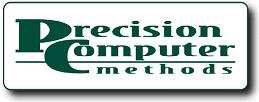I'm sure you have heard the term Blog before, but you may not know what it means. Blog is a word derived from Web and Log. That is, it is similar to an online journal that you can post in addition to your core website. Blogs are created as journals or as soapboxes by many people who don't even have a website, but seem to have something to say.
____________________________________________________________
Tags: Blogging, Blog, Web Content, SEO, Web traffic, SERP, Traffic
One of the easiest and quickest ways of getting traffic to your website is by using Pay-Per-Click (PPC) advertising. The two most popular PPC programs are Google AdWords and Yahoo Search Marketing. To clarify what PPC actually does, you begin by creating short ads that will be displayed on the search engine results pages (SERP) as Sponsored Links. When you create the ad, you are also identifying the keywords that will draw the ad to the SERP.
Tags: SEO | organic search | Paid Search, Web traffic, SERP, Web Optimization, PPC, Pay-Per-Click
Your Website's First Impression - SEO SOS #5
Posted by Peter Heinicke on Sun, Jun 17, 2012 @ 11:15 PM
We have focused on keywords for positioning and for content in past lessons. Now we need to look at traffic generation soon. But first, let's consider what a visitor sees when they do arrive at your site. Does your site convey authority on its topic? Does it get to the point of what you do and what you offer right away? Is the navigation logical and easy to understand? Yes, we want traffic; but we want that traffic to stick around, too. Your web statistics will show where a viewer enters your website, where they exit and how long they stay. So you will be able to easily determine the success of how well-like your website it. We'll cover more on web stats in a later SEO SOS lesson. Two things are of paramount importance in your web design: 1) The first impression you make, and 2) The navigation style you use. Let's explore first impressions of a website in this lesson. We've all heard the expression, "You only get one chance to make a first impression." With the breadth and depth of the Internet, this statement couldn't be more important. Factors that impact how well your website is received include:
Tags: SEO, Web traffic, Website Traffic, SERP, SEO Authority, Web Optimization
The search engines do not understand a whopping 99% of the websites on the Internet because they are not deemed to be relevant. There are millions of sites that should be considered irrelevant, but yours shouldn't be one of them.
What makes a site relevant? Content that relates to the theme of the site. That is, if your site is about coaching, then it is important to clearly define whether that coaching refers to little league coaching or football coaching or life coaching or business coaching. If the only keyword emphasized on your website is coaching, it will be difficult for the search engine to provide consistent results on the Search Engine Results Page (SERP) when a search is performed. Your business coaching website will come up along with all the little leaguers, the football coaches as well as your competitors, depending on what additional words show up on
your page content.
A complex algorithm known as Latent Semantic Indexing (LSI) is a technology used by the search engines to check not only the keywords on your website and the positioning of those keywords but also other related words that should commonly appear with your keyword or keyword phrase. This is how a website is determined to be relevant. Algorithms like LSI have come into being because there are so many websites on the Internet that simply throw up a
website with just their keywords listed and no other content. LSI takes into consideration additional related content that would naturally show up if the content is relevant to the keyword or keyword phrase and is appropriate to the theme.
Therefore, if your website is not showing up in the top 20 to 30 results in a search query, you can bet that the search engines do not find your website to be relevant or an authority on the topic you have chosen for your website's theme. Granted, there are other factors involving the creation of authority, but it all starts with keywords and content related to those keywords.
So how do we find out what the LSI technology considers important and related content that should appear along with your keywords to give your page weight and relevance? There is a simple technique you can use to determine what additional words will help with this goal. Using Google, put a keyword into the search box with a tilde (~) in front of the keyword. The SERP will show up with all the words that Google thinks are relevant to this keyword in bold.
For example, put ~meditation tool in the search box and the resulting bolded words are: meditation tool, tool, techniques, relaxation tools, tools, Yoga tools, relaxation tool, and spiritual on the first 3 pages. The lesson here is that if you want your website that offers a meditation tool to place well in the SERP, you will want to include some of these other related words and phrases.
Using this technique will give you a great start to building a website that will be considered relevant and an authority by the search engines once they know you exist. While it is important to drive traffic to your website, it is equally important that once traffic arrives at your website, the viewer finds content of value. And the most important visitors your website will ever host are Google and Yahoo and MSN, the Big Three.
Looking back at the past SEO SOS lessons, remember, good content is not English 101, but Marketing 101. You can deliver the message of your site without ignoring the very important search engine technology that places you well on the SERP.
Tags: Web traffic, Search Engine Optimatization, SERP, SEO Authority





